Hey there again my fellow sea changers. Let me start today by asking you a question. Have you noticed when doing your research that you often see the same sites appearing at the top of your search engine results pages? Do you then ask yourself “How do they do that?”. Well if you do, this post is for you as today we are going to discuss how to research competitors websites for you own benefit.
Why? Well those of you who have read any of my posts will note that I often mention how long it can take to successfully build an online business in the affiliate marketing space so I think that anything you can do to save your self some time has to be a good thing.
Secondly, why reinvent the wheel? If these guys are doing things that are working, then why not take a leaf out of their book – after all – you know it works as they are on page 1. So let's have a look at some of the things we can check out in order to enhance our own pages and maybe ethically steal a bit of their traffic as well…
Note: Before we begin I need to make one thing clear here. We are discussing the things that these sites are doing that we can copy such as content strategy, keywords and social media management. We are NOT talking about copy and pasting their content or posts. This is something I feel strongly about as I am a believer in building a business ethically. But even if you are not as fervent in those beliefs, the search engines will identify your stuff as duplicate content and punish your site accordingly.
That's right! Wealthy Affiliate provided me with all of the tools and training I needed to get this post in front of my audience - a.k.a YOU!
You too can start your very own online business here that can make you money from anywhere in the world!!
How to research competitors websites
Now, let's look at some of the things we can check out in regards to how to find competitors affiliate marketing website listings, what they are doing and use it to improve our own online business.
Content
The first thing I usually do when I come across a successful website within my niche is to have a read of their content. I do this not to copy it obviously but to check out the following:
- What audience are they writing for? – Have a look to see if their audience matches yours and whether there are aspects of this missing within your site.
- What is the writing style? – Is it formal, informal, humorous or casual etc.
- How long are the posts? – Are they short and sweet or full of informative information
- What types of posts do they favour? – Do they write mainly reviews, how tos, use lists, opinion posts etc. This can give you a good insight as to what types of posts work well for your audience.
- What else do they use? – Are there a lot of pictures, videos, tables, charts etc. that may be an attraction for your audience.
This information can provide you with a blueprint on the types of content to focus on as you move forward with your own site. If you think about it, the owners of these types of sites are not going to waste time writing content that is not read, and more importantly does not convert to sales. They have spent years watching their statistics to see what type of content is popular, you can see this information on their site in minutes.

Ranking Tools
Once you have an idea on what it is that makes your competitors popular, you can then use some diagnostic tools to see where they are really hitting the mark with their sites and rankings. Alternatively, you can use these tools to actually locate who the most popular sites are for a particular niche or subject. There are a number of tools that do this – some free and some paid including:
Similarweb

Similarweb is a site that allows you to enter 3 or four competitor sites to see who is getting the most traffic, where it is coming from and how long people are staying on their sites etc. You can also use this platform to find sites that attract the most traffic for a particular niche of subject as per the below example for CBD Oil:

From here you can see what keywords they are using (see next section) or how they are managing their content (see previous section). Similarweb has a free 10-day trial with costs starting from $199 per month.
Neil Patel's Ubersuggest
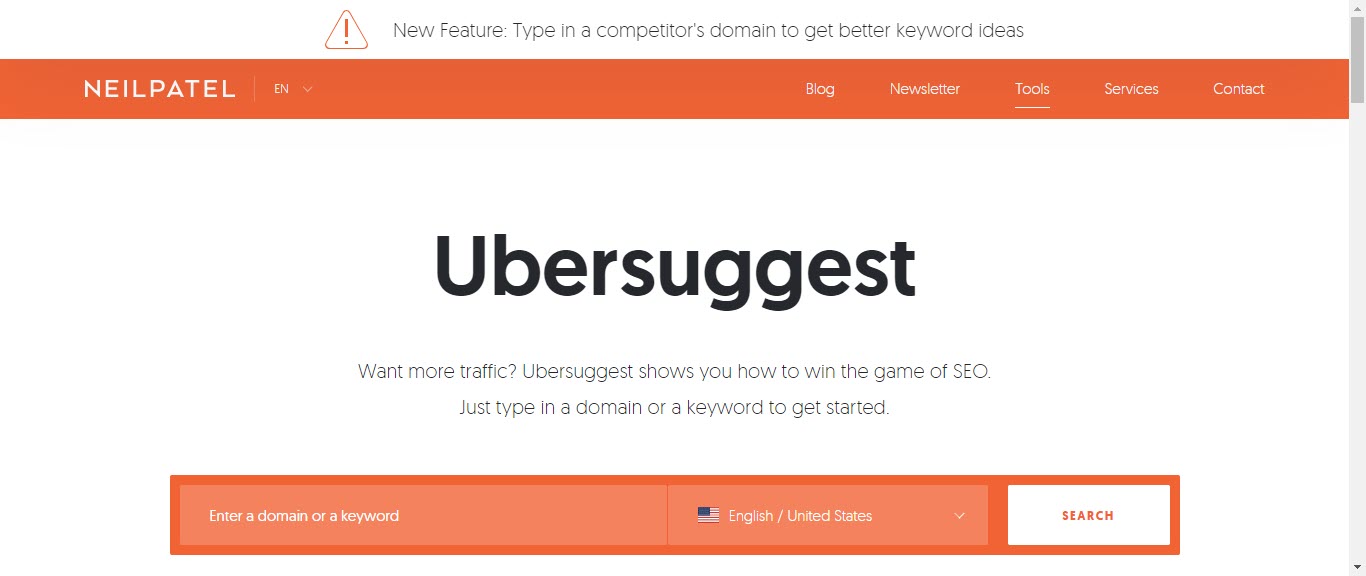
Ubersuggest is a free analysis tool that I often use that allows you to see a competitor's:
- Traffic numbers
- Highest ranking pages
- Highest raking keywords
- Number of keywords ranked for.
Let's see how this looks with our CBD oil example with a website that came up in first place when I searched on the “benefits of CBD oil”.

From here I can again see which of their content is the most popular and what keywords they are ranking for.
Note: In my search results I chose the first page that was a CBD oils specific niche page which ranked at about number 6 on the SERP. This was due to the fact that the example I we are using here is for a CBD niche and those competitors. The higher results were medical, health or natural remedy pages which did not focus solely on this niche. The decision is obviously always yours as to which sites you choose to do your research on.
Other sites that perform similar functions in this space include:
That's right! Wealthy Affiliate provided me with all of the tools and training I needed to get this post in front of my audience - a.k.a YOU!
You too can start your very own online business here that can make you money from anywhere in the world!!
Keywords
We discussed keywords in the previous section when looking at online tools to help you analyse your competitors. However, due to their importance, I wanted to discuss them a little more here as this is probably the one area that I look at the most when I am checking out the competition. I do this for two reasons:
- I want to see what words they are using to get them to rank so highly within SERPs.
- I want to get some keyword ideas for when I am struggling to come up with my own.
Let's deal with the first one first. I mentioned earlier that one of the first places that we can find out competitors is when we undertake searches within our own niches – usually as part to your research. If these sites are ranking at the very top then there are obviously a few factors to that – and we could spend hours discussing SEO – however one of these factors is obviously keywords so the more you understand how they utilise them, the better off you will be.
As you look through the sites/posts of your competitors from the point of view of how they use their keywords, consider the following:
- What the keywords are – Do some searching within a keyword tool and see what they are using, what their stats are – look for patterns in terms of rankings and statistics to see if there are thresholds that the writers use (obviously each tool is different but general stats are along the lines of monthly search numbers, traffic and competition etc.).
- How and where they use them – Search engines do not like posts that are stacked with keywords but have a look at where they are used on these sites – i.e in the title, first paragraph and another heading or in the title only. Wave your mouse over images to see if they have keywords in their alt tags and also what they are using within their meta descriptions (the blurb on the SERP site).

- What variants they use – the jury is definitely out on this one and everybody has an opinion on their worth however another thing you can do is to scan their writing and see what variants they are using – for example, the keywords for this post are “How to Research Competitors” – Look for examples where they might include variations of this such as “Competitor research” or “researching competitors” to attract more search rankings. Some swear by this and some don't but it is always interesting to see what others are doing in this space.
The second piece of the puzzle here is to use your competition to help you find your own keywords. I use this often when I know what I want to write about but the keywords I am searching are just not good enough to allow me to rank effectively.
What I then do is look at my competitors and see how they have worded their titles. Often it is those little adjustments to the words used or the order that they are in that makes the keywords so much stronger. I then work with those until I find ones that I like for my title.
Note: The main reason that I separated this section from the one discussing the use of tools to check out keywords is that in this section I wanted to focus on the more realistic uses of keywords such as how they are used and incorporated into posts rather than the cold hard statistics of the tools. Both are useful but getting that feel for how the successful sites use them can really open up some benefits for you as you work on your own site.
Check out my post: Using Keyword Research for Affiliate Marketing Success
Google Alerts
Google Alerts is a great little tool that simply allows you to be notified whenever one of your main competitors releases new materials/posts. It also allows you to see what is ‘trending' and if there are any new sites starting to rank within your niche.

With Google Alerts, you setup email notifications whenever new content is released based upon your own niche, a subject or competitor. For example, I have an alert set up for Affiliate Marketing where everyday I receive an email listing all of the main posts that have been written relating to that subject.

From here I can see information such as:
- Any news to do with affiliate marketing – this is usually about big companies such as Amazon etc.
- Any posts that my competitors have released that may be worthwhile checking out as per above.
- Ideas for new posts
- What is ‘hot' – i.e. are there subjects that more than one site is covering?
Note: There is a lot there that you will not read and a lot that is ‘useless' but trust me, this is a goldmine for finding information that you can feed back into the research options listed above.
Social Media
Of course social media! Like google alerts, social media is where you can see exactly what your competitors are up to as they will usually tell you via their posts. You will be able to monitor what they are releasing, how they are doing it and more importantly, you can see what their followers are telling them, asking for and discussing.
This information is priceless as it lets you see exactly what their readers want so if you are providing that also then you are a chance of attracting some of that traffic as well.

Perhaps the most critical element here however is to track exactly what social media platforms they are using and how they are using them. Social media management can be a very time-consuming process so anything you can do to ensure that you are working in the right areas has to be an advantage to you. Check the following:
- What platforms they are using
- How they seek interaction
- What they are publishing – video, pictures, stories etc.
- Cross section of followers – age, gender, etc. – does this match what you think your audience is?
Note: The beauty of this avenue of competitor analysis is that you can actually follow their pages and interact yourself by asking questions and chatting with other followers. But NEVER spruce your own site here – it will get you a bad reputation and lose any good work that you have done.
FAQ
Why is it important to research competitors' websites?
Researching competitors' websites is crucial for gaining a competitive edge and improving your own online presence. By analyzing their websites, you can identify their strengths and weaknesses, understand their strategies, and find opportunities to differentiate yourself. It helps you stay updated on industry trends, benchmark your performance, and make informed decisions to enhance your marketing, product offerings, and user experience.
Conclusion
So there you have it… How to research your competitors to your own advantage. Just remember as long as you do it ethically, you will be able to copy the things that they do well and also learn some cool tricks along the way. Remember, these ;people have been there and done that so why not see what works for you.
I hope this has been helpful and as usual, please do not hesitate to comment below if you have any questions, need some advice or have any experiences to share.
Do you want further assistance with any of the above or need help to build your own affiliate marketing website?
Are you looking for a comprehensive training platform that can give you step by step training, 24/7 support, tools to ethically develop and host your very own website, ongoing assistance with SEO and social media and access to some of the best affiliate marketing minds on the planet, then click on the following link to read more about Wealthy Affiliate.
Until next time
Have fun
Paul
Note: If you make a purchase from this page, there is a very good chance that I make a commission from it – these commissions do not increase your sale price. This may include sales made via Wealthy Affiliate.






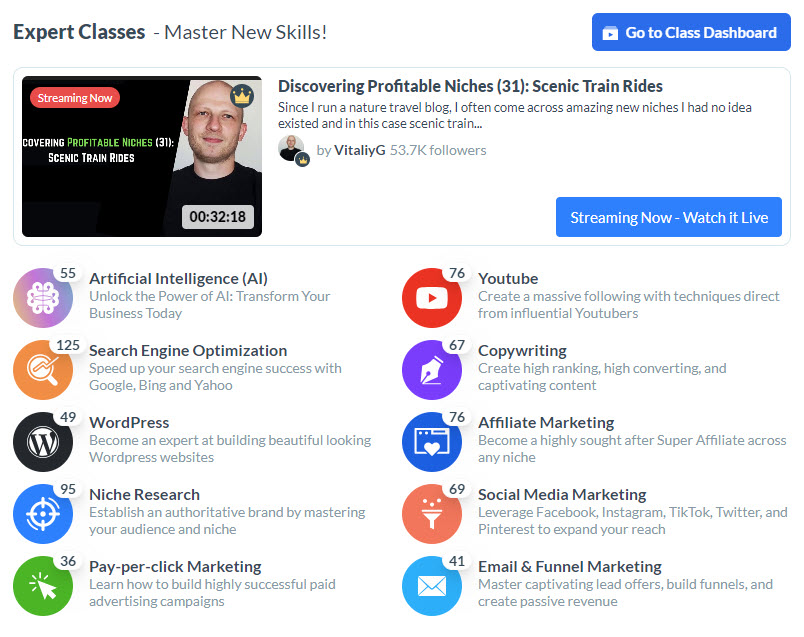

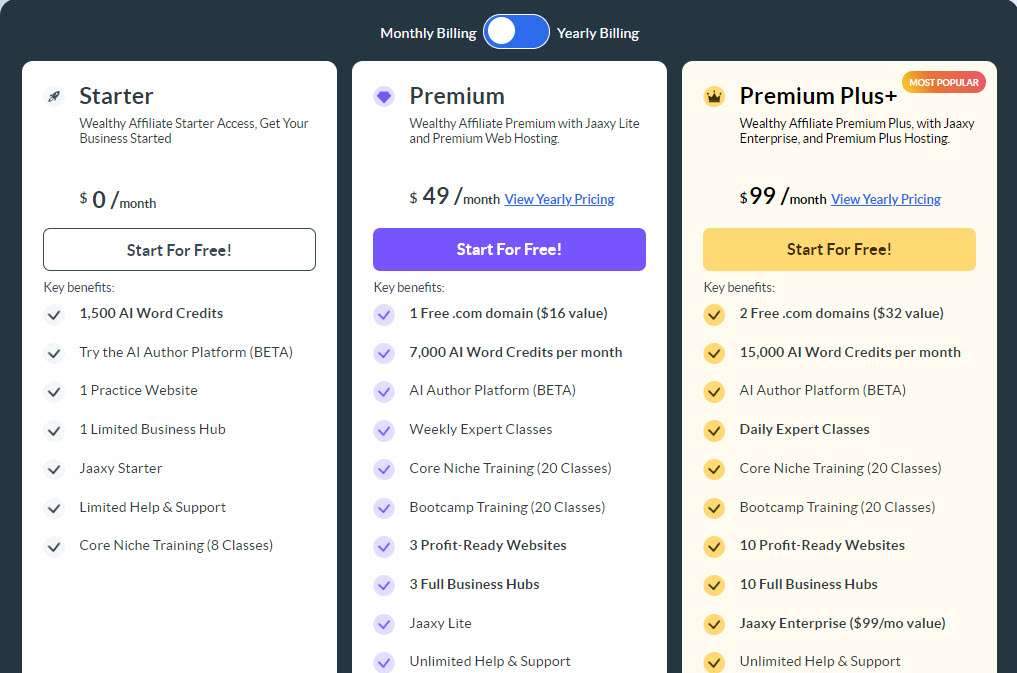



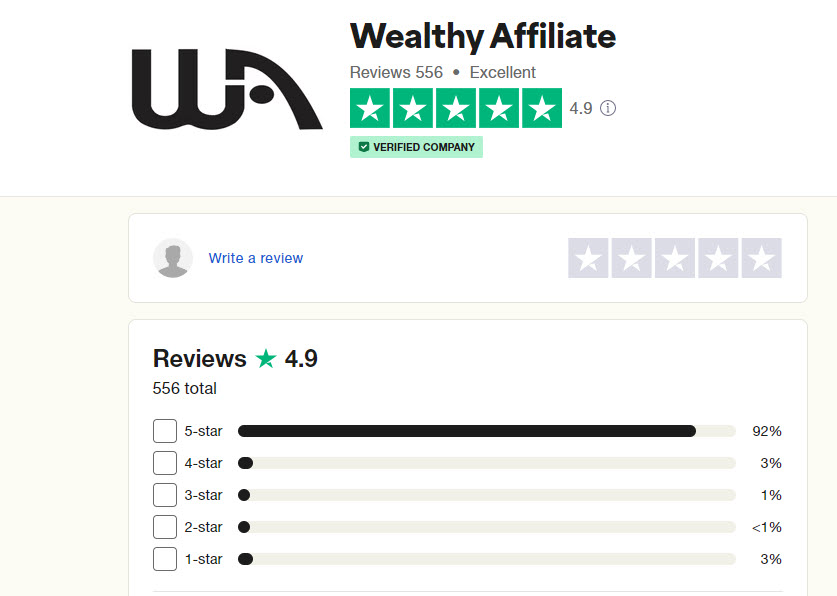


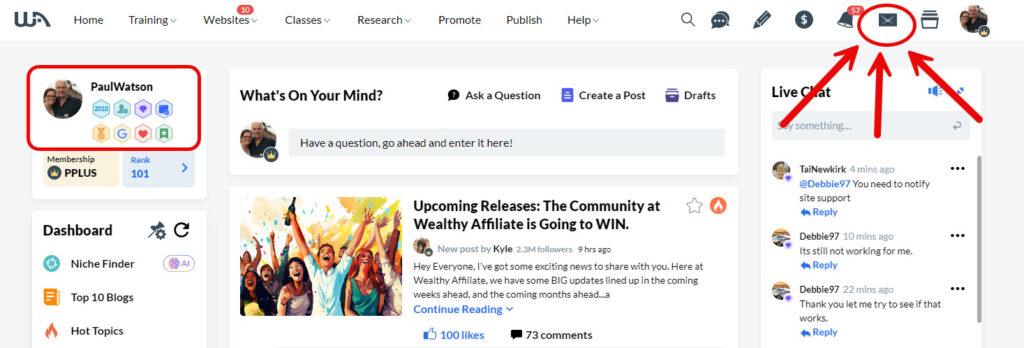






Thank you for this post. Your post was very informative and gave me a lot of good ideas and help on improving my own sites rankings.
Starting a new blog can be time consuming and the information you gave will help move the process along faster and help get me better rankings.
Thanks Myrna
Glad it helped and please do not hesitate to reach out if you have any questions.
Paul
Hi Paul. I am new to blogging and have been stumbling along wondering how I can improve my website rankings and increase the visitor numbers to my site. Thank you for this incredible information. I will definitely be trying some of them out, starting with the very first one, similarWeb. Researching your competitors seems the logical way to go. I realize that we can’t copy and paste from other bloggers pages but, as you say, we can come up with numerous ideas. The other tool I wasn’t aware of and, will now use, is Google Alerts. I remember a successful business man in this country once saying, it’s wise to know what your competitors are up to. All the best. Jim
Thanks Jim
Similarweb is a favourite of mine that’s for sure
Paul
So much great SEO information here I added it to my list of search engine optimization training in my browser bookmarks. I hope you will let me site your post as a resource on my own blog (no copying) at a future date. This day and age everyone or at least half of Asia is an SEO, and very little of the information on the web is accurate or actionable. Your site though is both.
Thanks Andy – more than happy for you to site as required.
Thanks again
Paul